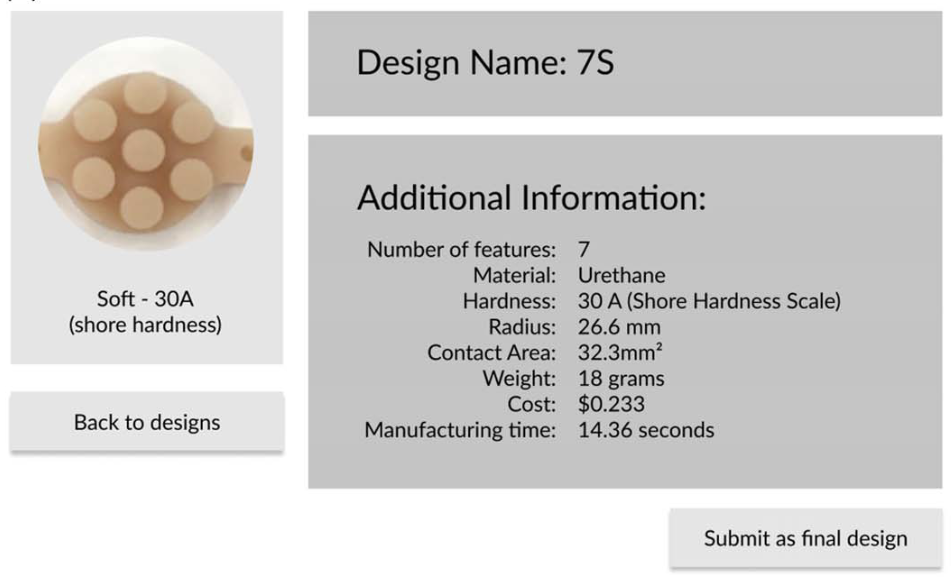Abstract
Engineers often do not select the best designs available to them. This research investigates whether specific design actions impact performance in a design exploration task and whether the reasoning factors underpinning these actions can be inferred directly. This study uses objective performance metrics to quantitatively evaluate multiple dimensions of design behavior and cognition within concept selection. Fifty-six participants were tasked with identifying an optimal design for the gripping contact of a dishwashing robot. Results identified that specific design actions correlated with improved design performance, including exploring fewer design alternatives and isolating parameters. We found that reasoning factors stated by participants did not accurately map onto their observed actions and did not correlate with task performance. Implications related to future computational design support tools are discussed.
